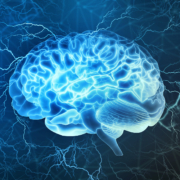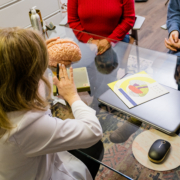How a music wearable may one day help dementia patients
Music has always been something that can help soothe the soul—clinically speaking, it has been used for years to increase mindfulness and ameliorate patients’ mental health. In dementia patients, it may prove even more valuable for people who experience such symptoms as agitation, irritability or depression.
Sure, there’s research in this area. It’s also the aim of a new artificial intelligence-powered tool, created by Music Attuned Technology-Care via eHealth (MATCH), a project funded with the help of a $1.3 million Google grant, which aims to link music therapy with wearable technology.
While this tool is currently in the development phase at the University of Melbourne in Australia, the mobile app is out now and aims to help caregivers use music more mindfully. Eventually it will highlight ways to pick music and music-based activities that are best for patients with dementia.
In addition, the researchers are developing specific modules that will show how music can foster connections with families affected by dementia.
The device includes sensors placed on a wearable such as a wristband or jacket. The wearable then indicates when a person with dementia is becoming agitated by changes in heart rate and blood pressure. At that moment, the device can then find music that fits the person’s mood via a list provided by a caregiver or can shuffle tracks. It can even adapt to the individual’s musical tastes, depending on what they might need in the moment.
“By combining the known therapeutic benefits of the patients’ personally preferred music with wearable sensor technology and AI that creates a bespoke music adaptive system, we will be able to provide early detection and treatment of agitation,” says Felicity Baker, a music therapist and co-director of the University of Melbourne’s Creative Arts Therapy Research Unit and the principal investigator of the MATCH project, said in a statement.
Baker is also leading a study on the effects of music therapy on those with depression and symptoms of dementia.
This pilot program will launch in Australia with the goal of an eventual worldwide rollout. Ultimately, combining the proven therapeutic benefits of music with wearable sensors and AI will be yet another tool caregivers can look forward to using.
“We are working to create a better everyday life for people living with dementia, their families, and caregivers on the dementia journey,” Baker says.
This article has been factchecked. For more about that process, click here.









